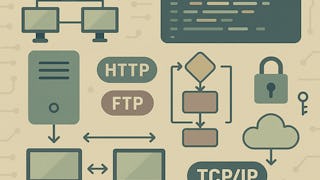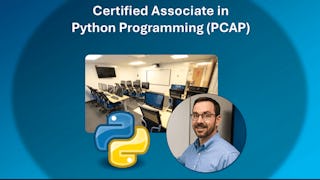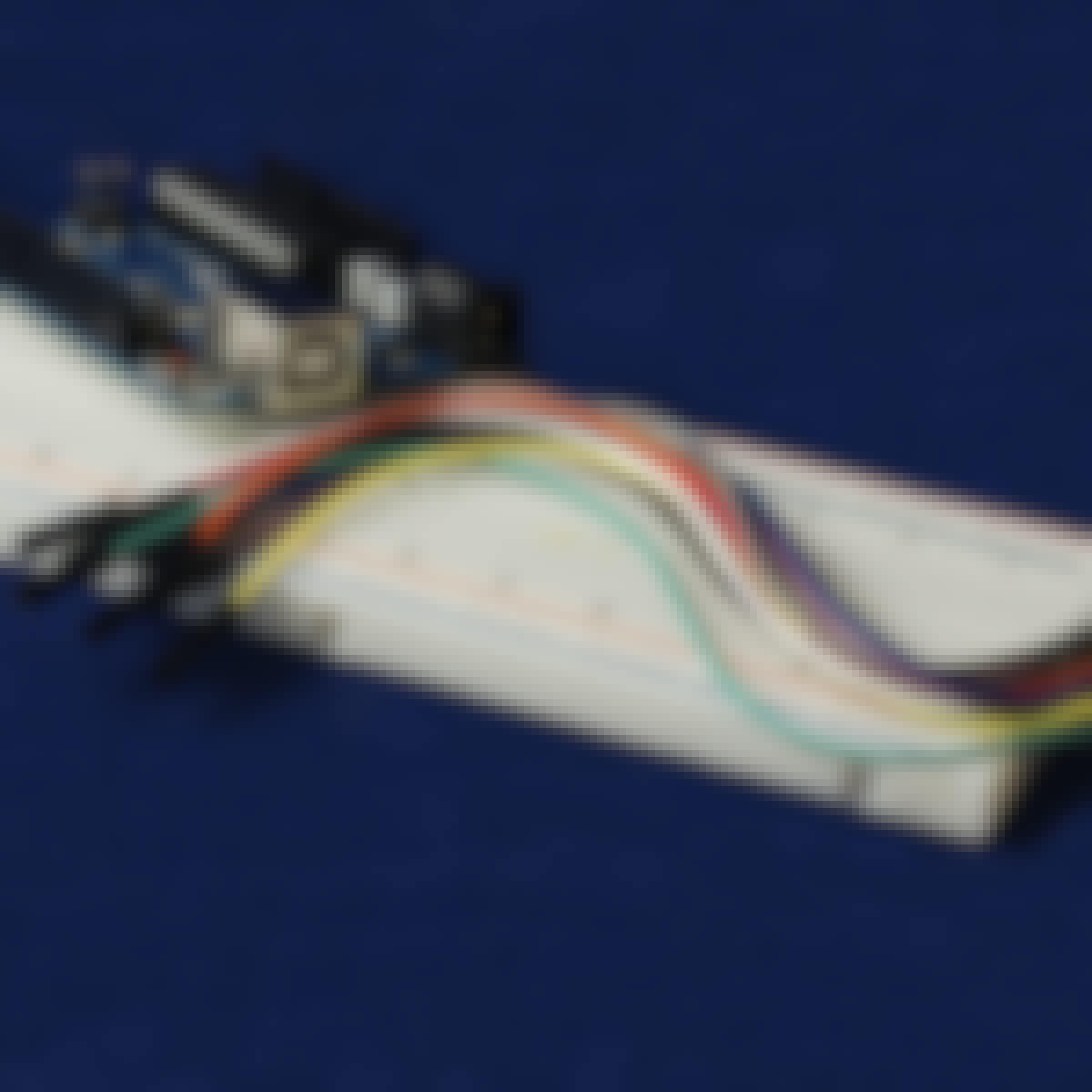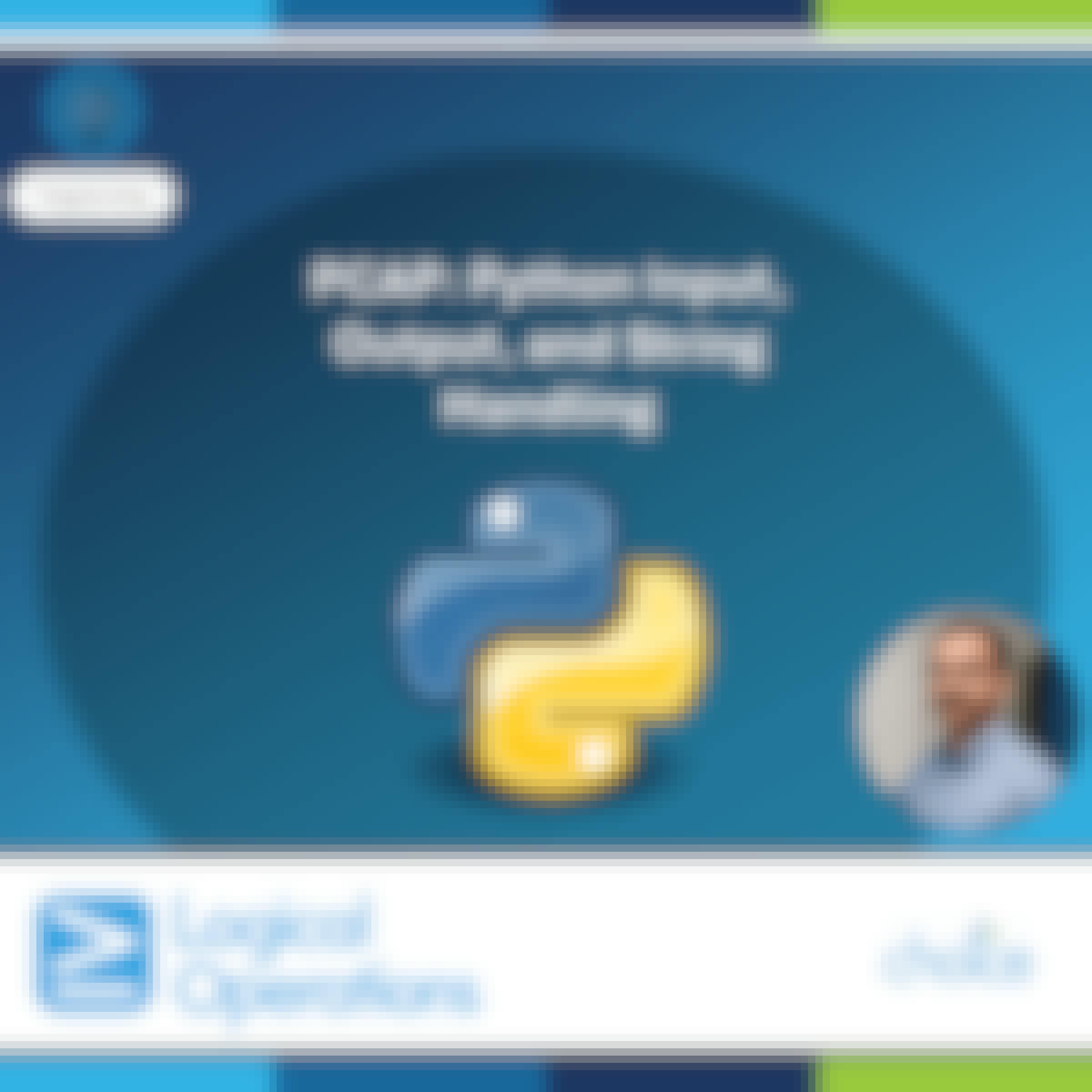- Browse
- Socket Programming
Socket Programming Courses
Socket programming courses can help you learn network communication, data transmission protocols, and client-server architecture. You can build skills in handling sockets, managing connections, and implementing error handling techniques. Many courses introduce tools like Python's socket library, Java's Socket API, and C's Berkeley sockets, demonstrating how these tools facilitate the development of networked applications and services.
Popular Socket Programming Courses and Certifications
 Status: Free TrialFree TrialD
Status: Free TrialFree TrialDDartmouth College
Skills you'll gain: Command-Line Interface, C (Programming Language), Linux Commands, Linux, Embedded Systems, File I/O, Embedded Software, Software Visualization, Programming Principles, Computer Engineering, Linux Servers, File Systems, System Programming, Algorithms, Computer Architecture, Computer Programming, Software Documentation, Computer Science, Software Engineering, Debugging
4.6·Rating, 4.6 out of 5 stars435 reviewsBeginner · Specialization · 3 - 6 Months
 Status: NewNewB
Status: NewNewBBirla Institute of Technology & Science, Pilani
Skills you'll gain: Web Servers, Distributed Computing, Application Servers, Servers, Network Architecture, System Programming, Network Protocols, Systems Architecture, TCP/IP, Computer Networking, Network Performance Management, Scalability, File Transfer Protocol (FTP), System Design and Implementation, Web Services, Microservices, File Systems, Debugging, Software Development, Application Programming Interface (API)
Beginner · Course · 1 - 3 Months
 Status: Free TrialFree TrialU
Status: Free TrialFree TrialUUniversity of California, Irvine
Skills you'll gain: Test Planning, Embedded Systems, Linux, Internet Of Things, Embedded Software, Basic Electrical Systems, Automation Engineering, User Requirements Documents, Electronics, Functional Requirement, Operating System Administration, Electronic Components, Systems Design, Operating Systems, Requirements Analysis, Network Protocols, Debugging, Application Programming Interface (API), TCP/IP, Python Programming
4.7·Rating, 4.7 out of 5 stars20K reviewsBeginner · Specialization · 3 - 6 Months
 Status: Free TrialFree TrialU
Status: Free TrialFree TrialUUniversity of London
Skills you'll gain: Pseudocode, C++ (Programming Language), Object Oriented Programming (OOP), C and C++, File I/O, Object Oriented Design, Integrated Development Environments, Computer Programming, Development Environment, Programming Principles, Debugging, Data Structures, Program Development, Algorithms, Interactive Design, Data Modeling, Model Evaluation, Software Engineering, Test Data, Data Validation
Build toward a degree
4.7·Rating, 4.7 out of 5 stars248 reviewsIntermediate · Specialization · 1 - 3 Months
 Status: NewNewStatus: Free TrialFree TrialL
Status: NewNewStatus: Free TrialFree TrialLLogical Operations
Skills you'll gain: Object Oriented Programming (OOP), File I/O, Python Programming, Operating Systems, Package and Software Management, Data Import/Export, Computer Programming, Development Environment, Object Oriented Design, Scripting, File Management, Scripting Languages, Programming Principles, Data Processing, Debugging, Program Development, Cross Platform Development, Computer Programming Tools, Software Development, Data Structures
Intermediate · Specialization · 1 - 3 Months
 Status: Free TrialFree Trial
Status: Free TrialFree TrialSkills you'll gain: Jest (JavaScript Testing Framework), Web Development Tools, Javascript, Unit Testing, Web Applications, Programming Principles, Object Oriented Programming (OOP), Event-Driven Programming, Node.JS, JSON, Computer Programming, Data Structures, Debugging, Package and Software Management, Program Development, Front-End Web Development, Development Environment, Functional Design
4.7·Rating, 4.7 out of 5 stars4.9K reviewsBeginner · Course · 1 - 3 Months
What brings you to Coursera today?
 Status: Free TrialFree TrialU
Status: Free TrialFree TrialUUniversity of London
Skills you'll gain: Computer Science, Debugging, Development Environment, Computer Systems, Web Applications, Arithmetic, Computer Literacy, Javascript, Network Security, Computer Networking, Computer Programming Tools, Applied Mathematics, Computer Graphics, Web Design and Development, Software Development Tools, Cybersecurity, Computational Thinking, Computer Programming, General Mathematics, Problem Solving
Build toward a degree
4.2·Rating, 4.2 out of 5 stars1.5K reviewsBeginner · Specialization · 1 - 3 Months
 Status: Free TrialFree TrialR
Status: Free TrialFree TrialRRice University
Skills you'll gain: Apache Kafka, Apache Spark, Apache Hadoop, Distributed Computing, Dataflow, Java Programming, Java, Software Architecture, Systems Architecture, Scala Programming, Data Structures, System Programming, Programming Principles, Servers, Application Frameworks, Debugging, Algorithms, Performance Tuning, Functional Design, Performance Testing
4.6·Rating, 4.6 out of 5 stars1.6K reviewsIntermediate · Specialization · 3 - 6 Months
 Status: Free TrialFree TrialU
Status: Free TrialFree TrialUUniversity of Pennsylvania
Skills you'll gain: File I/O, Matplotlib, Object Oriented Design, Java, Object Oriented Programming (OOP), Data Analysis, Unit Testing, Pandas (Python Package), Java Programming, Eclipse (Software), Application Development, Data Visualization, Data Structures, Data Science, Data Cleansing, Debugging, Programming Principles, Computer Programming Tools, Python Programming, Computer Programming
4.5·Rating, 4.5 out of 5 stars1.9K reviewsBeginner · Specialization · 3 - 6 Months
 Status: Free TrialFree TrialU
Status: Free TrialFree TrialUUniversity of California, Irvine
Skills you'll gain: Embedded Software, Embedded Systems, Debugging, C (Programming Language), Electronic Components, Computer Hardware, Integrated Development Environments, Computer Programming, Electronics Engineering, Network Protocols, Development Environment, Digital Communications, Open Source Technology
4.7·Rating, 4.7 out of 5 stars7.2K reviewsMixed · Course · 1 - 4 Weeks
 Status: Free TrialFree TrialU
Status: Free TrialFree TrialUUniversity of Michigan
Skills you'll gain: C (Programming Language), Programming Principles, C++ (Programming Language), Algorithms, Data Structures, Other Programming Languages, System Programming
4.5·Rating, 4.5 out of 5 stars96 reviewsIntermediate · Course · 1 - 4 Weeks
 Status: NewNewStatus: Free TrialFree TrialL
Status: NewNewStatus: Free TrialFree TrialLLogical Operations
Skills you'll gain: File I/O, Cross Platform Development, Operating Systems, Data Import/Export, Development Environment, Scripting, File Management, Scripting Languages, Data Processing, Virtual Machines, Python Programming, Programming Principles, Computer Programming, Software Development
Mixed · Course · 1 - 4 Weeks
In summary, here are 10 of our most popular socket programming courses
- C Programming with Linux: Dartmouth College
- Network Programming and Client-Server Programming: Birla Institute of Technology & Science, Pilani
- An Introduction to Programming the Internet of Things (IOT): University of California, Irvine
- Object Oriented Programming: University of London
- Certified Associate in Python Programming (PCAP): Logical Operations
- Programming with JavaScript: Meta
- Introduction to Computer Science and Programming: University of London
- Parallel, Concurrent, and Distributed Programming in Java: Rice University
- Introduction to Programming with Python and Java: University of Pennsylvania
- The Arduino Platform and C Programming: University of California, Irvine
Frequently Asked Questions about Socket Programming
Socket programming is a method used to enable communication between devices over a network. It allows applications to send and receive data through network sockets, which are endpoints for sending and receiving data. This technique is crucial for developing networked applications, such as web servers, chat applications, and online games, as it facilitates real-time data exchange. Understanding socket programming is important because it forms the backbone of many modern applications, enabling them to connect and interact seamlessly over the internet.
With skills in socket programming, you can pursue various job roles in the tech industry. Positions such as network programmer, software developer, and systems engineer often require knowledge of socket programming. Additionally, roles in game development, where real-time communication is essential, also value this expertise. Companies looking for professionals to build and maintain networked applications frequently seek candidates with a solid understanding of socket programming.
To learn socket programming effectively, you should focus on several key skills. First, a strong foundation in programming languages like C, Python, or Java is essential, as these languages are commonly used for socket programming. Understanding networking concepts, such as TCP/IP protocols, is also crucial. Familiarity with asynchronous programming and multithreading can enhance your ability to manage multiple connections efficiently. Additionally, problem-solving skills and a grasp of data structures will aid in developing robust applications.
There are many online courses available to help you learn socket programming. Some recommended options include the C and Go: Classical and Modern Programming Specialization and the C Programming with Linux Specialization. These courses cover essential programming concepts and provide practical experience with socket programming, making them suitable for learners at various levels.
Yes. You can start learning socket programming on Coursera for free in two ways:
- Preview the first module of many socket programming courses at no cost. This includes video lessons, readings, graded assignments, and Coursera Coach (where available).
- Start a 7-day free trial for Specializations or Coursera Plus. This gives you full access to all course content across eligible programs within the timeframe of your trial.
If you want to keep learning, earn a certificate in socket programming, or unlock full course access after the preview or trial, you can upgrade or apply for financial aid.
To learn socket programming, start by choosing a programming language that supports socket operations, such as Python or C. Begin with the basics of networking concepts, including how data is transmitted over the internet. Next, work through tutorials and practical exercises that involve creating simple client-server applications. As you progress, tackle more complex projects that require handling multiple connections and implementing error handling. Engaging with online communities can also provide support and resources as you learn.
Socket programming courses typically cover a range of topics, including the fundamentals of network protocols, the creation of client-server applications, and the use of sockets for data transmission. You may also learn about error handling, multithreading, and asynchronous programming techniques. Advanced courses might explore specific protocols like HTTP or WebSocket, as well as security considerations in network programming. These topics equip you with the necessary skills to build robust networked applications.
For training and upskilling employees in socket programming, courses like the Advanced Unix System Programming and Performance Specialization can be particularly beneficial. These programs are designed to enhance practical skills and understanding of socket programming in a professional context, making them suitable for workforce development. Investing in such training can help teams build more efficient and effective networked applications.










